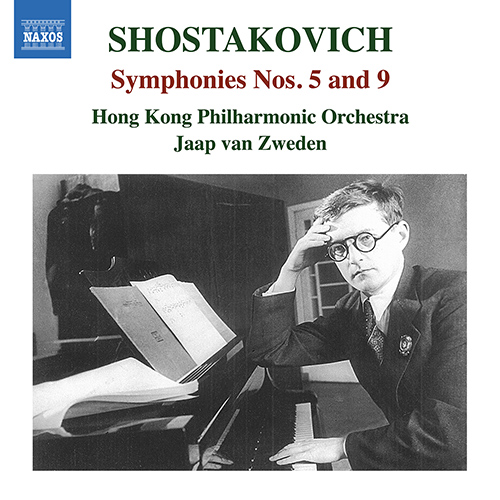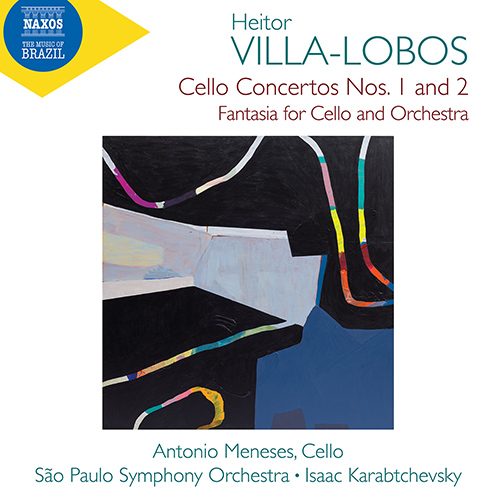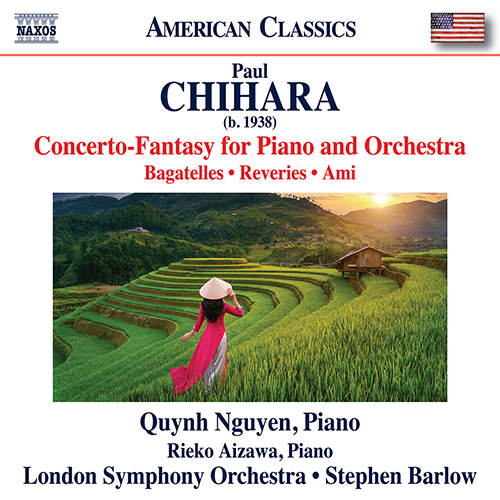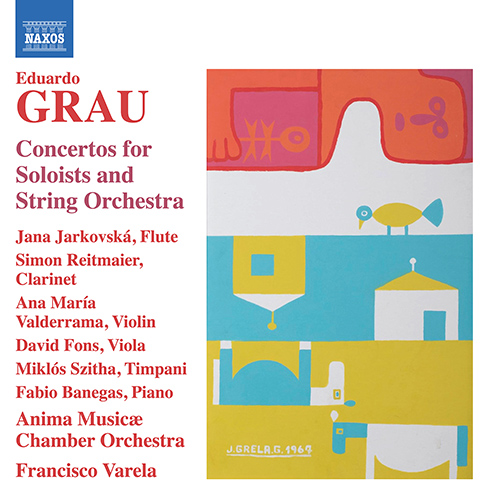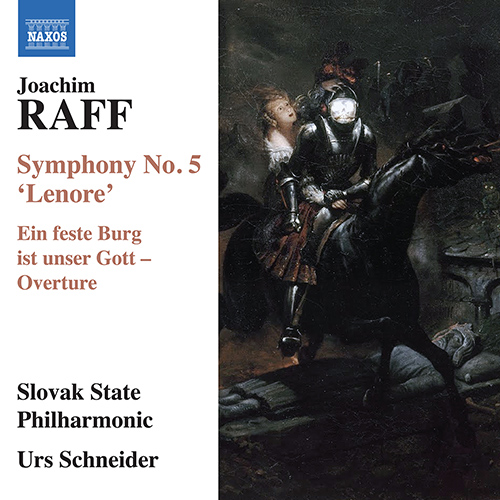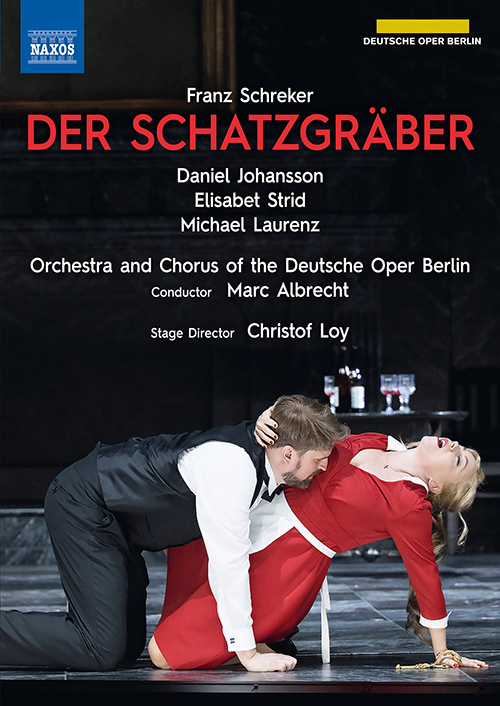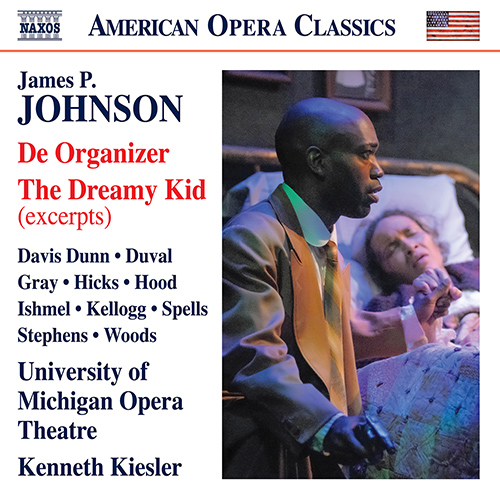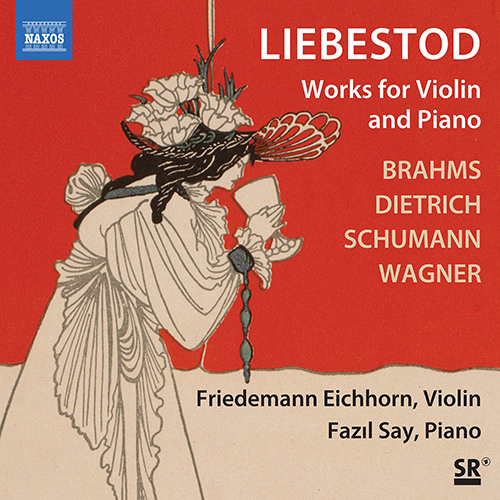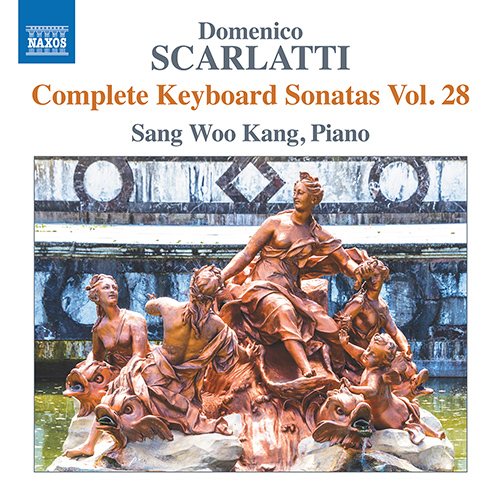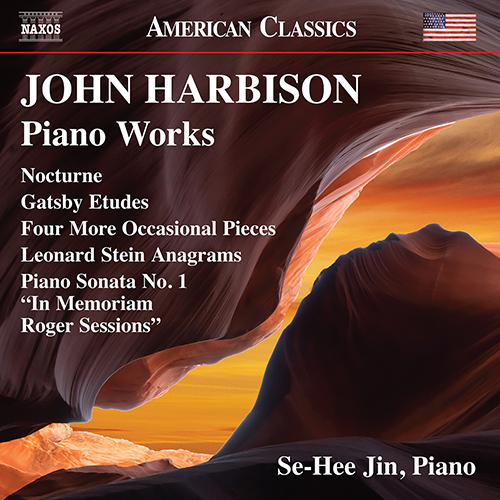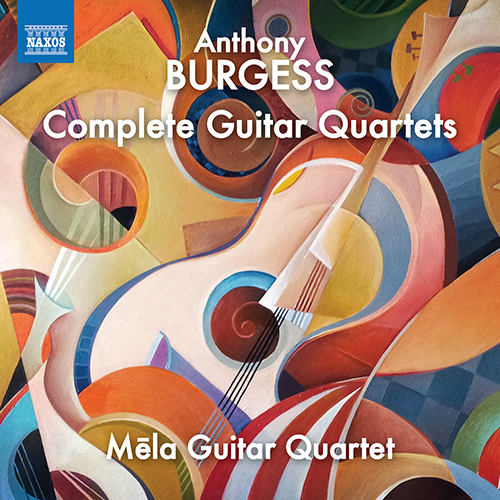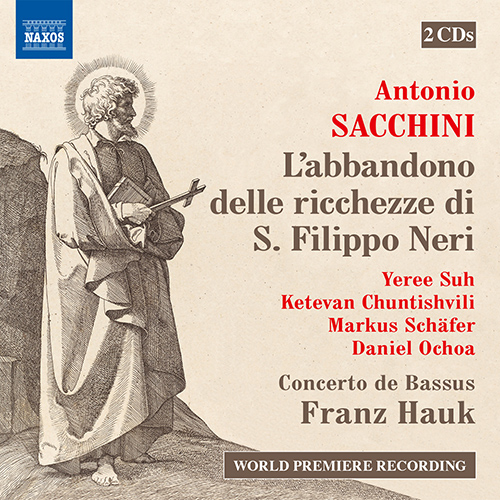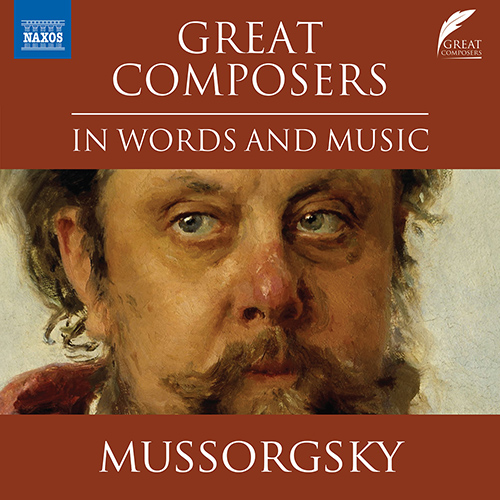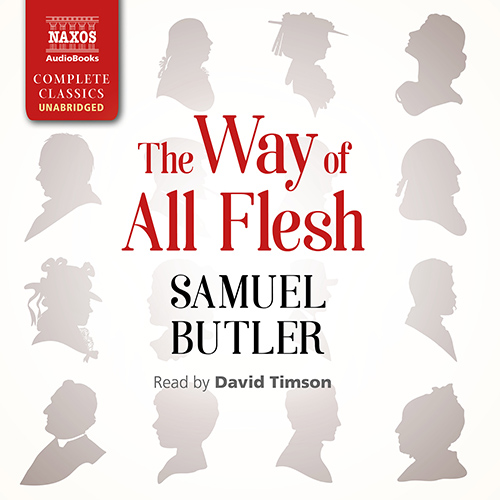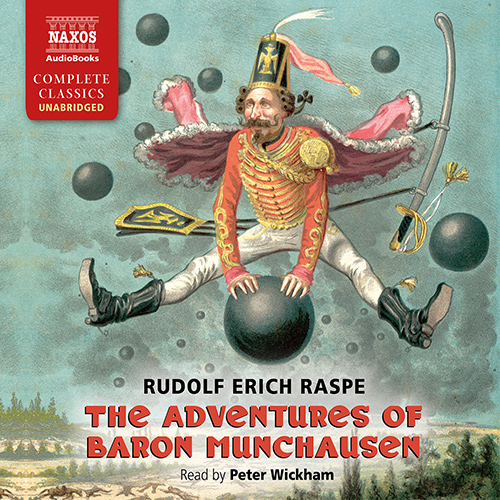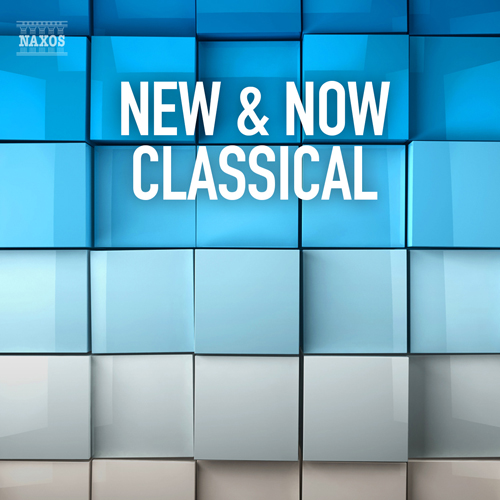The September NEW ON NAXOS presents the Hong Kong Philharmonic and conductor Jaap van Zweden’s new recording of Dmitry Shostakovich’s Fifth Symphony – one of the most performed symphonic works of the 20th century – together with the jaunty, neo-Classical Symphony No. 9. This follows their recordings of the Tenth Symphonies of Mahler and Shostakovich, for which the HK Phil was praised for their ‘perfectly moulded strings’, and ‘superb’ sound and balance (BBC Music Magazine).
Other highlights include a rare audiovisual release of Der Schatzgräber (‘The Treasure Hunter’) by Franz Schreker staged by award-winning director Christof Loy for Deustche Oper Berlin; pianist Fazıl Say and violinist Friedemann Eichhorn’s latest collaboration, performing mid-19th century Romantic German repertoire; the world premiere recording of Antonio Sacchini’s oratorio L’abbandono delle ricchezze di S. Filippo Neri presented by Franz Hauk and the Concerto de Bassus; the latest instalment in author and musicologist Davinia Caddy’s Great Composers in Words and Music series featuring the life and works of Modest Mussorgsky narrated by Nicholas Boulton; and more.
![]() Watch our monthly New on Naxos video to sample the highlighted releases of the month.
Watch our monthly New on Naxos video to sample the highlighted releases of the month.
Shostakovich’s Symphony No. 5 was premiered in 1937. It was composed in response to the Soviet denouncement in Pravda of the composer’s most recent works. The symphony was an overwhelming success, returning the composer to favour with the authorities, and remains one of the most performed symphonies of the 20th century. The jaunty, neo-Classical character of Symphony No. 9 was in stark contrast to the ‘victory symphony’ expected by Soviet officialdom. Shostakovich’s startlingly different original draft for the opening of the first movement can be heard on 8.572138.
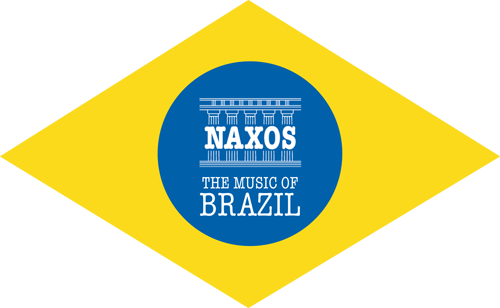
The Cello Concerto No. 1 was Villa-Lobos’s first major orchestral work. Filled with youthful energy and displaying an eclectic style, it is the sound of the composer finding his voice. Three decades later and with his reputation at its height, the inspired melodies and flowing style of the Fantasia sees Villa-Lobos giving free rein to his vivid imagination. Composed for the Brazilian cellist Aldo Parisot, the no less inventive and lushly scored Cello Concerto No. 2 from 1953 suggests man’s solitude when facing the vastness of nature.
INCLUDES A WORLD PREMIERE RECORDING
Recipient of numerous notable awards and commissions, Paul Chihara is renowned for his film and television scores as well as for an extensive catalogue of orchestral, choral and chamber works. Composed for and in close collaboration with award-winning pianist Quynh Nguyen, recognized for her sensitive and poetic playing, the lyrical Concerto-Fantasy is inspired by traditional Vietnamese music, expressing a sense of longing for a peaceful past and projecting jazz-tinged possibilities for the future. From the haiku-like Bagatelles and the haunting intimacy of Ami, to the characters and inspired adaptations that emerge through the Four Reveries on Beethoven, Chihara’s delightfully approachable piano music is full of surprises and discoveries.
Fons • Szitha • Banegas
Anima Musicæ Chamber Orchestra • Varela
WORLD PREMIERE RECORDINGS
The music of Spanish-Argentine composer Eduardo Grau is imbued with Hispanic elements. His Concerto of ‘Yuste’ for Violin, Piano and Timpani was inspired by the Spanish monastery of its title and is notable for its rhythmic drive, lyricism and mystical atmosphere. The Concertino for Viola and Piano is deeply expressive and intimate, while folkloric dances from Argentina are used in the Concerto for Clarinet including the vivacious chacarera. The verses of Spanish Golden Age poet Garcilaso de la Vega provided the inspiration for Grau’s To the Flower of Gnido for Flute and Piano.
The imposing nature and sweeping expressive range of Joachim Raff’s Fifth Symphony has seen it become one of his most popular works in the genre. Its subtitle ‘Lenore’ refers to a lurid and macabre poem by Gottfried August Bürger in which the forlorn heroine forsakes God to join her dead lover on a wild ride through an ultimately horrific night. With its delicately scored and touching love music, celebrated march and brutal finale, this is a spirited and memorable symphony. The overture Ein feste Burg ist unser Gott uses Martin Luther’s famous melody to commemorate the drama of the Thirty Years’ War.
Deutsche Oper Berlin Chorus and Orchestra
Albrecht • Loy
Franz Schreker’s career was cut short by the events of 1933 in Germany but he achieved real fame with his operas, and the huge success of Der Schatzgräber (‘The Treasure Hunter’) in the 1920s was the high point of his career. In a complex and ultimately tragic tale of destructive greed, desire and toxic social hierarchy, the innkeeper’s daughter Els is forced to confront the consequences of her murderous intent in what conductor Marc Albrecht considers ‘a work of exceptional quality, concentration and significance’. Following the huge success of Korngold’s Das Wunder der Heliane (Naxos DVD 2.110584–85 / Blu-ray NBD0083V), director Christof Loy continues his exploration of strong female characters and neglected 20th-century masterpieces with this highly acclaimed Deutsche Oper Berlin production.
Woods • Ishmel • Hood • Kellogg
University of Michigan Opera Theatre and Symphony Orchestra
Kenneth Kiesler
* WORLD PREMIERE RECORDING
Renowned as an influential jazz pianist, James P. Johnson also flourished as a composer of opera and of show tunes in the 1920s and 1930s. His two short operas The Dreamy Kid and De Organizer offer contrasting stories of African American life at that time, revealing both its incredible hopefulness and precariousness in the inter-war years. The Dreamy Kid is a tragedy, marked by police violence in a racially unjust atmosphere, and De Organizer is a hopeful story of solidarity and resistance meant to break the twin oppressions of poverty and racism. Johnson sets these stories to an eclectic and powerful mixture of jazz, swing, blues and ragtime that capture the essence of African American music-making in the early 20th century.
INCLUDES WORLD PREMIERE RECORDINGS
Turkish pianist and composer Fazıl Say is joined by his longstanding friend, the violinist Friedemann Eichhorn, in an album of mid-19th-century German repertoire. Influenced by Liszt, Say’s ingenious transcriptions of the Prelude and Liebestod from Wagner’s Tristan und Isolde are heard here in world premiere recordings. The composite F–A–E Sonata of Dietrich, Schumann and Brahms is seldom encountered as a whole, while Schumann’s Violin Sonata No. 1, though written at a time of unhappiness, contains moments of glorious beauty and intimacy.
A complete performance of Domenico Scarlatti’s 555 keyboard sonatas would take over two days of continuous playing, and the majority are still little-known today. This 28th volume features a wide selection of these original, imaginative and colourful works. It includes spritely dances (K.7), an energetic triple-time romp (K.55) and a Spanish influenced evocation of flamenco (K.142) – among many other examples of Scarlatti’s seemingly limitless musical invention.
* WORLD PREMIERE RECORDING
Pulitzer Prize-winning composer, John Harbison, is recognized as one of the dominant figures of his generation, with commissions from most of America’s leading musical institutions as part of a catalog of more than 300 works. Pianist Se-Hee Jin has been exploring Harbison’s oeuvre with fearless and insightful interpretations ever since their first meeting at Tanglewood many years ago. From the rhapsodic and virtuoso First Piano Sonata to the fleeting images of the Leonard Stein Anagrams and the playful Gatsby Etudes, this program represents works from the 1980s to the present, including several world premiere recordings.
INCLUDES WORLD PREMIERE RECORDINGS
Composer and novelist, Anthony Burgess, was a unique creative artist whose dual mastery of music and literature resulted in a career strewn with an output of remarkable diversity. Burgess came into contact with the Aïghetta Guitar Quartet while living in Monte Carlo in 1986, and the sublime arrangements and original works in this recording were all composed for this ensemble. The three guitar quartets range from the well-crafted First Quartet intended as a homage to Ravel, while the Second and Third Quartets explore virtuoso technique alongside adventurous and at times haunting harmonies and polytonality.
Concerto de Bassus • Hauk
WORLD PREMIERE RECORDING
Antonio Sacchini’s renowned melodic gifts and facility as a composer were developed amid the flourishing Neapolitan school of opera but, outgrowing the Italian tradition, he later found inspiration working in London and Paris. The oratorio L’abbandono delle ricchezze di S. Filippo Neri narrates the spiritual trials of St Philip Neri as he is hounded by the personifications of Splendour and Deception on his journey, assisted and defended by Poverty, towards God and virtue. First performed in 1765, L’abbandono is heard here in its world premiere recording.
Narrated by Nicholas Boulton
The Great Gate of Kiev resounds to the tumultuous bell rings that end Pictures at an Exhibition, one of the most magnificent and virtuosic of all piano pieces. However, to some of his contemporaries, Modest Mussorgsky was ‘insane’ and ‘a perfect idiot’. Born into a wealthy land-owning family, what drove this tormented man and why did he suffer with psychological breakdowns and alcoholism? How did he achieve a command of the realist idiom in his stage works? Illustrated with some of Mussorgsky’s finest works, the biographical narrative includes excerpts from Songs and Dances of Death, Boris Godunov, Night on Bald Mountain and, of course, Pictures at an Exhibition.
The New & Now playlist features all that is new and exciting in the world of classical music, whether it’s new music, new presentations or new performers. With more than 200 new releases each year, and artists from around the world, there is always something new to discover with Naxos.
This month, there are some fantastic new additions to the playlist!
- George Antheil: Violin Sonata No. 1: II. Andante moderato (Tianwa Yang, Nicholas Rimmer)
- Charles Ives: Set No. 9 of 3 Pieces for Chamber Orchestra: III. Largo to Presto: The Unanswered Question (ed. J. Sinclair) (Orchestra New England, Sinclair)
- Joseph Bologne, Chevalier de Saint-Georges: Violin Concerto in G Major, Op. 2, No. 1: III. Rondeau (Fumika Mohri, Czech Chamber Philharmonic Orchestra Pardubice, Halász)
- Domenico Scarlatti: Keyboard Sonata in D Major, K.178/L.162/P.392 (arr. L. Peretić for guitar) (Lovro Peretić)
- Francesco Durante: Laudate pueri Dominum a 4 (Carmignani, Arrivabene, Ferrarini, Vargetto, Valotti, Acciai)
- Władysław Żeleński: Janek, Act I: Gdy ślub weźmiesz z twoim Stachem (reconstructed by P. Pietruszewski) (Gaj, Lublin Philharmonic Orchestra, Rodek)
- György Ligeti: Études, Book 1: No. 6. Automne à Varsovie (Han Chen)
- José Antônio Rezende de Almeida Prado: Sinfonia dos orixás (Symphony of the orishas): Saudação a Exu (Salutation to Eshu) (São Paulo Symphony Orchestra, N. Thomson)
- Adolphe Adam: Orfa, Act I: Act I: Mazurka, ‘Les traîneaux’ (Sofia Philharmonic Orchestra, Salvi)
- Imre Széchényi: Serenade in A Minor (Lázár, Kassai)
- Namlim Lee: Arirang (Kyoung Cho, Won Cho, Eun-Hee Park)
































